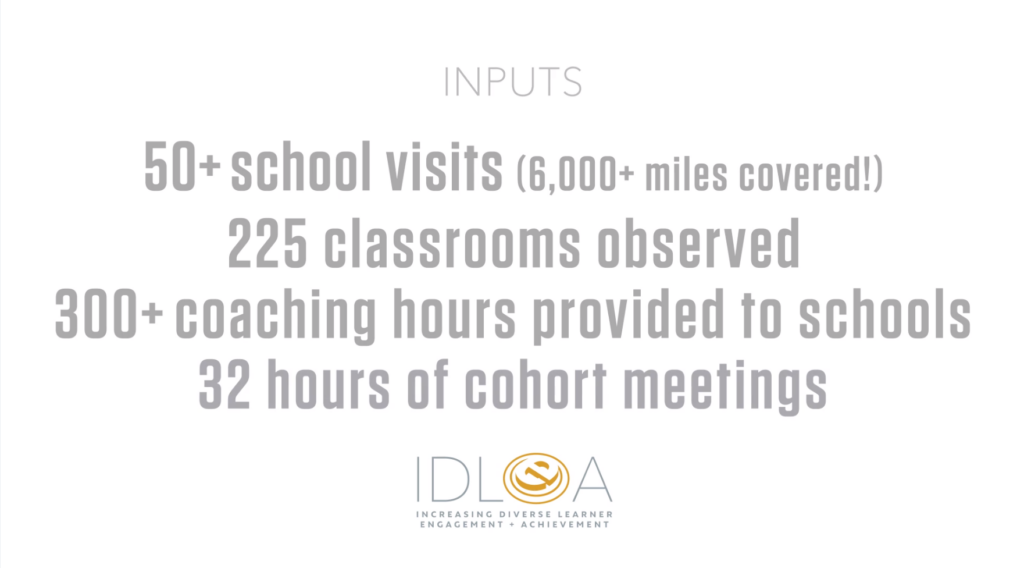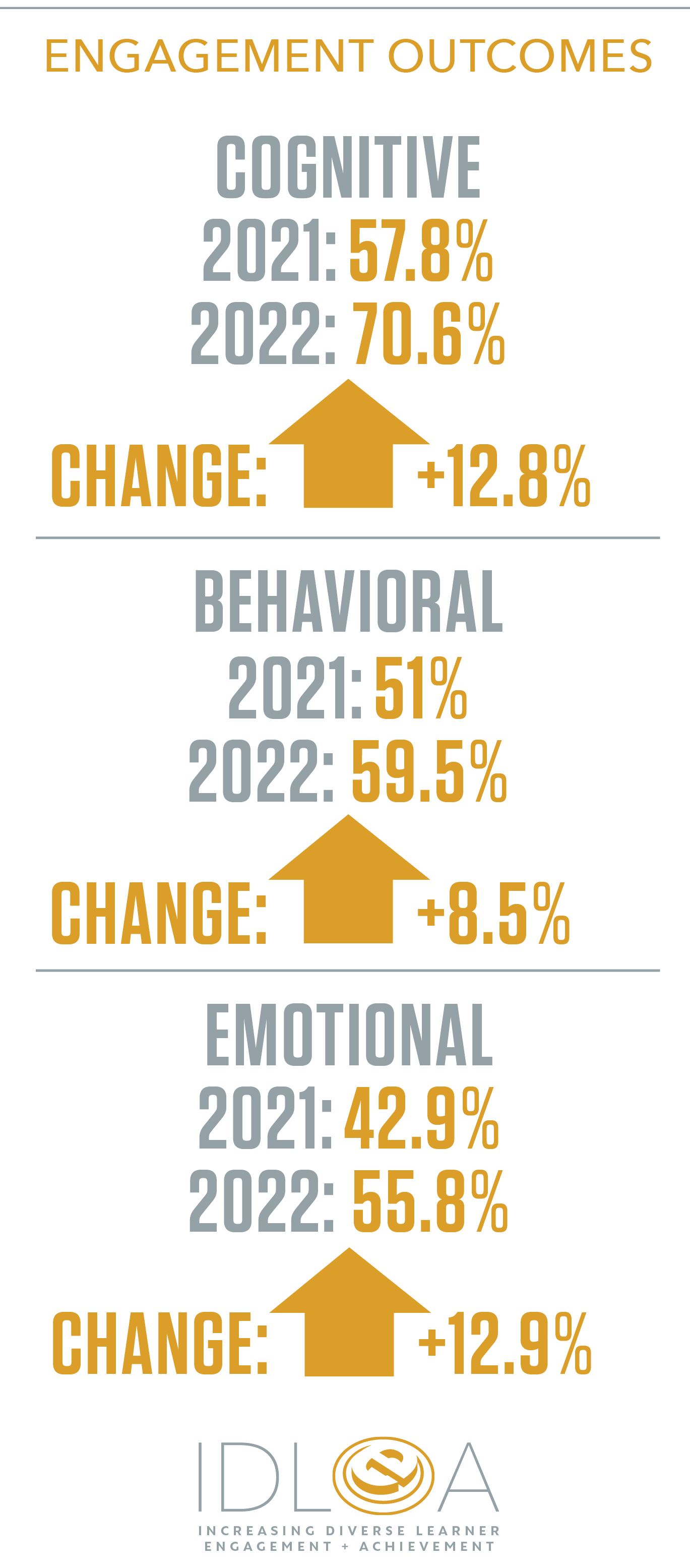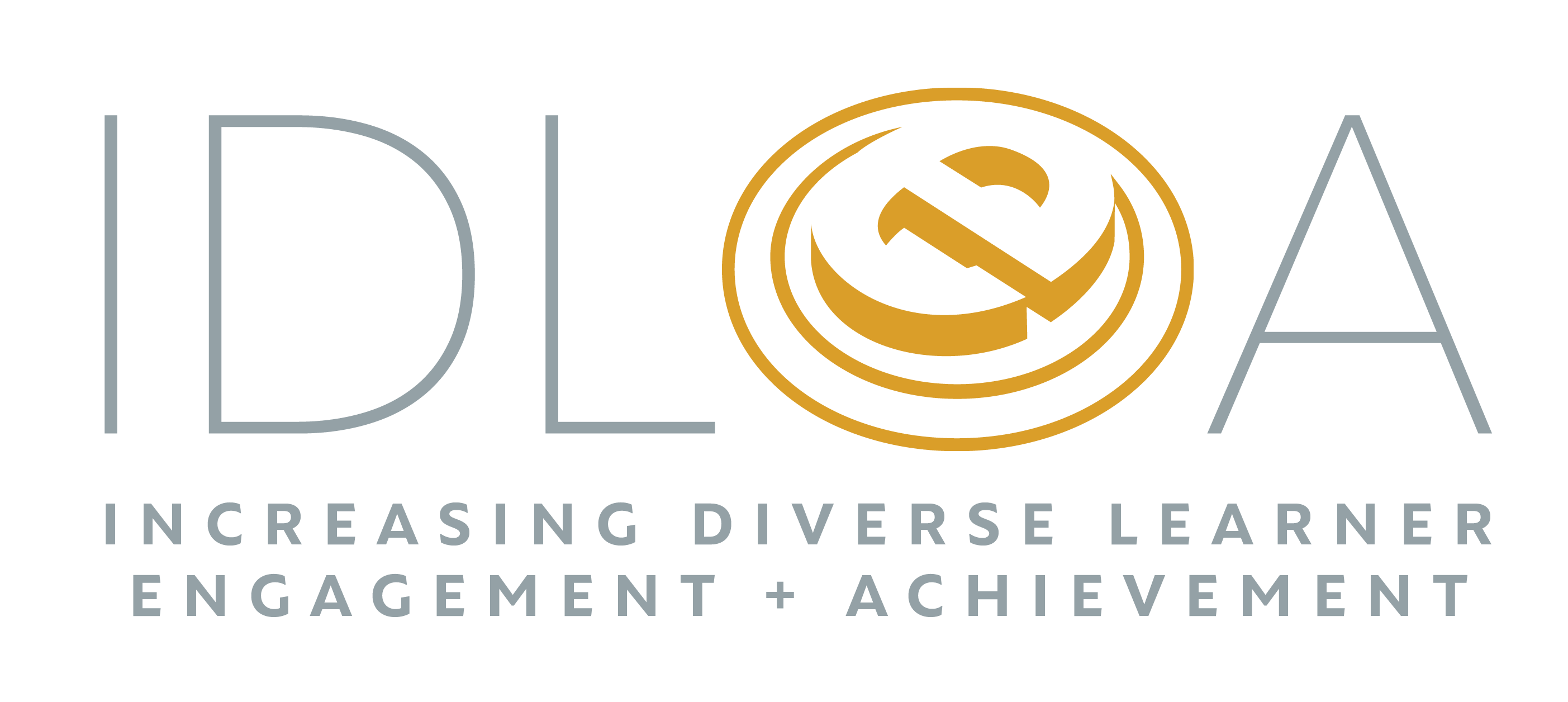“There is no question that the pandemic has caused many of our state’s students to regress, and innovative programs like the ones our charter schools have proposed can be an important step to mitigating that impact.”
—Dan Schaller, President
Facilitating, Coaching & Reporting to Support the RISE IDLEA Project
The Colorado League of Charter Schools saw an opportunity with the RISE grant to deploy an innovative definition of engagement and catalyze solutions around the state. To accomplish this, they formed a cohort with 13 schools throughout the state and external research and evaluation partners to design the IDLEA Project.
Their goal was to make sense of the challenges of engagement and better serve diverse learners at 13 charter schools in Colorado. As a result, these schools would become the model for all 261 charter schools and 4,570 public schools across the state.
Within the cohort, the League served as facilitator, coach and consultant. They also took on the responsibility of reporting on results and producing deliverables.
Rooted in Innovation, Equity & Community Collaboration
The innovation in the project lay first in the expansion of the definition of engagement to include emotional, cognitive, and behavioral engagement. This creates an understanding that students must be the focal point of education and must have a sense of well-being, an interest in the material, and the conditions that make them willing to take on the cognitive lift if they are to engage and achieve.
Secondly, it used an equity approach that sought to close gaps between diverse learners and their peers. COVID slide is far worse for diverse learners and could be
further and permanently entrenched without intervention. By focusing on diverse learners first, this project could help close this gap. Wide dissemination of project findings following the grant period will result in increased engagement among broader student populations, helping
counteract the overall COVID slide.
Lastly, to develop its project plan, the League convened regular meetings with cohort schools. The schools were asking for higher-quality education opportunities for diverse learners, and the IDLEA Project grew from discussions around these concerns. Each school was represented by a committee consisting of the instructional leader, a special education instructor, and a general educator. These committees represented their respective schools’ teachers, families, students, and broader community. The League gathered
both qualitative and quantitative data from these schools to inform the project plan.
Project Plan
PHASE 1: Engagement Assessment Tool Development. The cohort developed an assessment tool for evaluating the emotional, cognitive, and behavioral engagement levels of students within each school. The tool included data collection, surveys, interviews, and observations. Phase 1 was complete by the end of winter 2021.
PHASE 2: School Engagement Evaluation. A team of reviewers used the Engagement Assessment Tool to evaluate each
school’s results from Phase 1 to understand the school's engagement levels, identify strengths, and identify areas that can be improved upon. This provided the cohort with a baseline understanding of each school's strengths, opportunities and root causes of engagement challenges and helped guide the cohort in making further decisions around effective Engagement Strategies. Phase 2 occurred during
spring 2021.
PHASE 3: Engagement Strategy Identification. Based on the work conducted in Phase 2, the cohort built a toolkit of Engagement Strategies that schools could choose from, taking into account their student bodies, school cultures, and desired outcomes. Phase 3 was completed during summer 2021.
PHASE 4: Engagement Strategy Implementation & Evaluation. The League trained schools as they implemented their chosen Engagement Strategies and provided ongoing technical assistance. The Engagement Assessment Tool was used to continually monitor progress toward student engagement and subsequently achievement. In addition, community input (from caretakers, educators, schools’ external partners, and others) was sought to gauge the applicability and acceptability of a chosen Strategy. Engagement Strategies were finalized during summer 2021; implementation and evaluation began in fall 2021 and continued throughout the 2021-2022 school year.
PHASE 5: Results Dissemination. Using data collected during Phase 4, the cohort communicated and disseminated the project’s results via this website it constructed as part of this grant that includes a White Paper, a Roadmap, training materials, a resource center, and a
forum for ongoing dialogue with schools. This phase will greatly increase the project’s impact by sharing learnings and proven practices with all charter and public schools and educators throughout the state. Phase 5 will be completed by fall 2022. The League will continue disseminating project results via events and conferences, PR and other communications throughout 2022 and 2023.

About Us
The Colorado League of Charter Schools is a non-profit, membership organization dedicated to supporting the charter schools in the state. They are committed to helping these schools reach higher levels of student performance and overall success by providing information and resources, including technical support, advocacy, public relations assistance, and much more. Membership with the League is open to all charter schools in Colorado.
IDLEA Project Partners
In addition to 13 charter schools, the League worked with two outside research and evaluation firms—the National Center for Special Education in Charter Schools and Apex—to develop the assessment tool; measure the success of the Engagement Strategies that schools put into place; help measure achievement for diverse learners using these Strategies; and create a final White Paper and Roadmap to disseminate project findings, tools, and outcomes.
The League also leveraged relationships with the Special Education Leader Fellowship in New Orleans and the Diverse Learners Cooperative to train teachers at cohort schools in administering the assessment and in implementing their chosen strategies for the specific student body.
The Colorado Charter School Institute (CSI) acted as the fiscal agent for the IDLEA Project.


